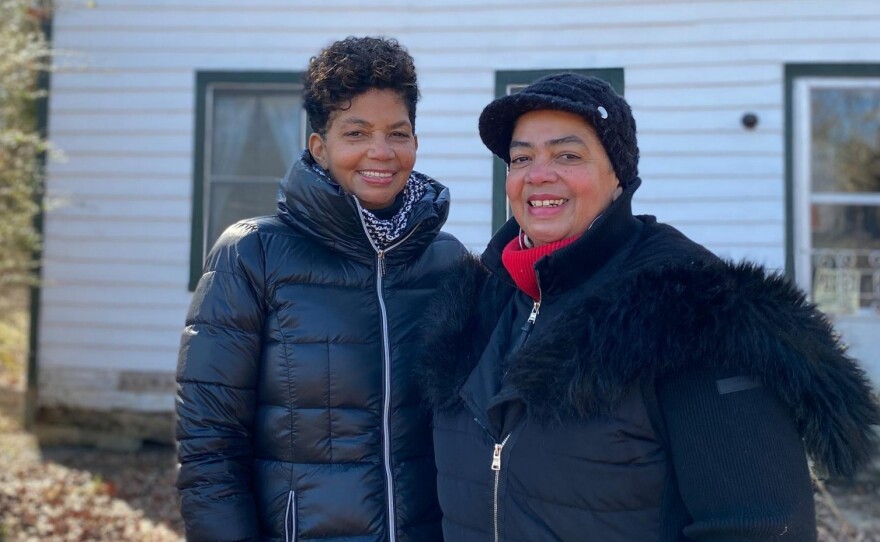Cordenia and Carol Paige are determined not to lose the land of their ancestors. The Paige sisters inherited over 30 acres (about half the area of a large shopping mall) of land in King William County along with a homestead passed down by their father Conan Pollard Paige.
The home and land were originally purchased during the Great Depression Era by Black men, their grandmother’s brother along with their great grandfather.
“First of all, to have your own property back then meant a lot. They did not have their own land; they did not have their property. So, for them to have their property and their land, that meant freedom to them,” Carol Paige said.
Cordenia Paige said the home was truly for family – all the family members pitched in to maintain the home during that time. When Paige’s great grandfather lived on the land it was a working self-sufficient farm with animals and fruit trees. Over time it became a summer home for the next generation like Paige’s father.
“We were at this house all the time, like in the summers,” Cordenia Paige said. “And even [one] winter – my dad was, he was such an adventurer. Once it snowed and he put chains on his tires and drove us from D.C. down here so we could play in the snow with our cousins.”
When Paige’s father retired, he started visiting the property every week and maintaining it. But when he passed away, the Paige sisters were left with a place and land filled with sacred memories.
“I was honored that my family felt I could be the steward for such a responsibility. And, and so that's why I'm motivated to want to do something with it instead of just keeping it static,” Cordenia Paige said.
The Paige sisters are now embarking on a mission to restore the home and find Black farmers who want to farm on the land. They envision making the home an artist or writer’s retreat.
“The reason my sister and I want to bring Black farmers and Black developers and Black artists to this land that my ancestors bought and built is because this community used to be such a thriving black community,” Cordenia Paige said.
According to the U.S. Department of Agriculture, in the 1920s, Black people made up 14 percent of farmers in America and worked 16 million acres of land. In a 2017, Census of Agriculture by the USDA, Black farmers made-up 1.3 percent of producers, while 3.2 million producers or 95 percent of the U.S. total are white farmers.
”I'm betting that there are many families that have lost touch with the land that they were born on, because our families very often went to look for work so that we could pay for the land. And now we're wanting to return to the land. We don't know how to manage it, or how to farm it. So, we have to learn from people who continue to farm and hopefully we can revive that,” Cordenia Paige said.
Black land loss is nothing new in America. For centuries, Black farmers and Black people have been pushed out of their own land by development, inherently racist policies, Heirs property laws, gentrification and more, as detailed by the Duke Sanford World Food Policy Center.
“When we lose our land, the soil from where these people stepped on, for our ancestors have been on this soil and we lose all of that. We lose our legacy of who we are. And once you lose that, the generation behind you [loses] their history,” Carol Paige said.
For Cordenia Paige, owning land means more than a name in a title.
“Because our ancestors in my family were purchased and were treated less than humans. At some point, then we were able to purchase land. So, it gave us a foundation,” Paige said. “But also, this is the land of the Mattaponi and the Powhatan. So, in addition to honoring the Africans who were enslaved. We can't ignore and we must honor the people who were original to this land, who also helped us survive.”
The Paige sisters have set up a Facebook page where those looking to help with their restoration efforts or Black farmers can get in touch. Click here to follow the Paige Ancestors Sanctuary.










